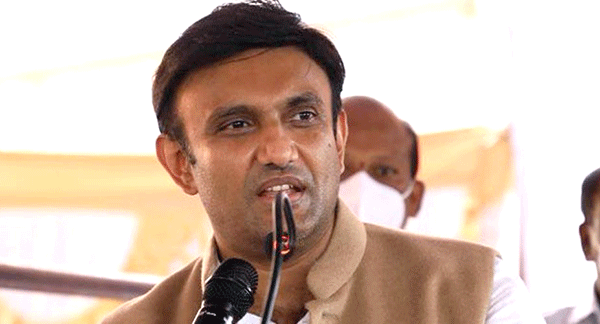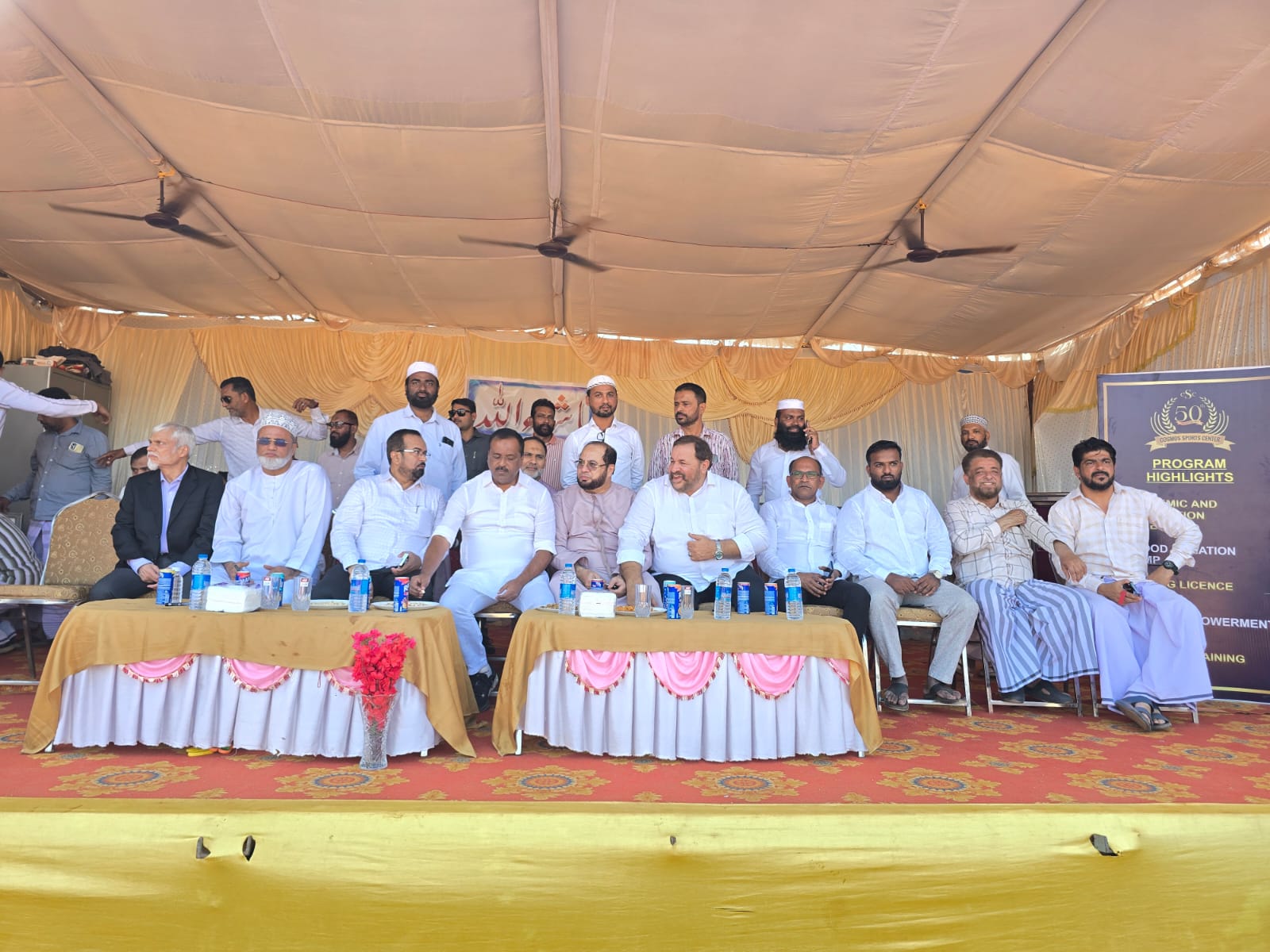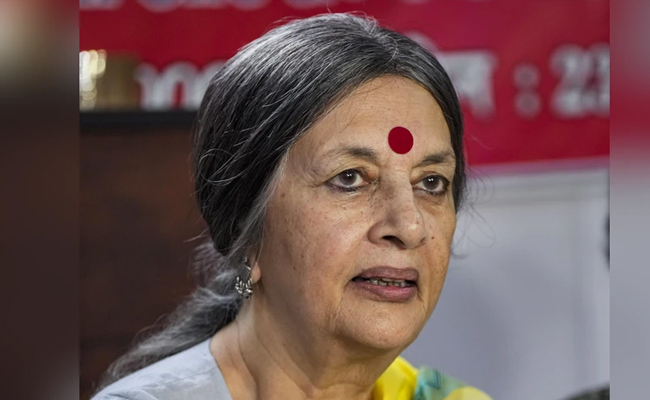Bengaluru, Oct 11: Karnataka Health Minister Dr K Sudhakar on Monday said his statement on modern women unwilling to marry and bear children at an event in NIMHANS was taken out of context and that he had no intention of singling out women and it was based on a survey, which cited statistics on what the younger generation felt about it.
During the World Mental Health Day at the National Institute of Mental Health and Neurological Sciences (NIMHANS) on Sunday, Sudhakar had said, "Today, I am sorry to say this, lots of modern women in India want to stay single. Even if they get married, they don't want to give birth. They want surrogacy. So there is a paradigm shift in our thinking, which is not good."
Issuing a clarification on Monday, Sudhakar said, "It is unfortunate that a small part of my address out of the nineteen and a half minutes long speech during the World Mental Health Day programme at NIMHANS on Sunday is taken out of context and thereby losing out on the larger point I was trying to make at the prestigious National Institute of Mental Health and Neurosciences."
He said that being a father of a daughter and medical doctor by training, he understood the sensitivities around women and also the mental health issues.
Sudhakar said that it is widely established through research and studies that in a situation where the mental health resource is a scarcity, families form a valuable support system, which could be helpful in management of various stressful situations. Indian society is collectivistic and promotes social cohesion and interdependence.
The traditional Indian joint family, which follows the same principles of collectivism, has proved itself to be an excellent resource for the care of the mentally ill, he said.
"Unlike western society, which puts the impetus on 'individualism', the Indian society is 'collectivistic' in that it promotes interdependence and co-operation, with the family forming the focal point of this social structure," the minister said.
According to him, the Indian and Asian families are therefore, far more involved in caring of its members and also suffer greater illness burden than their western counterparts.
Sudhakar added that the Indian families are more intimate with the patient, and are capable of taking greater therapeutic participation than in the west.
To substantiate his claim, he cited a research paper published in the Indian Journal of Psychiatry.
Sudhakar said his statement about younger generation shying away from marriage and reproduction is also based on a survey.
The findings of YouGov-Mint-CPR Millennial Survey shows that, among millennials, 19 per cent aren't interested in either children or marriage, the Minister said.
He added that another eight per cent want children, but are not interested in marriage.
"Among post-millennials (or Gen Z adults), 23 per cent aren't interested in either children or marriage. As in the case of millennials, eight per cent want children, but are not interested in marriage. There are very little gender-wise differences in these trends. It is applicable to both boys and girls," Sudhakar said.
The minister said he was trying to convey that youth can find solution and solace to mental health issues like anxiety, depression and stress in our traditional family and its value system, which offers a wonderful support system.
"I would like to clarify that I had no intention to single out women nor did my words mean so," Sudhakar clarified.
He also asked people to go through his full speech on his Facebook page.
Let the Truth be known. If you read VB and like VB, please be a VB Supporter and Help us deliver the Truth to one and all.
Mumbai (PTI): In view of Argentine superstar footballer Lionel Messi's visit to Mumbai on Sunday, the city police are implementing stringent security measures, like not allowing water bottles, metals, coins inside the stadiums and setting up watchtowers to keep an eye on the crowd, officials said.
The police also said taking extra care to avoid any stampede-like situation and to prevent recurrence of the chaotic situation that unfolded in Kolkata during Messi's visit on Saturday as thousands of fans protested inside the Salt Lake stadium here after failing to catch a clear glimpse of the football icon despite paying hefty sums for tickets.
Messi is expected to be present at the Cricket Club of India (Brabourne Stadium) in Mumbai on Sunday for a Padel GOAT Cup event followed by attending a celebrity football match. He is expected to proceed to the Wankhede Stadium for the GOAT India Tour main event around 5 pm.
"In view of Lionel Messi's visit to Mumbai, the police are geared up and have put in place a high level of security arrangements in and around the stadiums located in south Mumbai. Considering the chaos that prevailed in Kolkata and the security breach, we have deployed World Cup-level security arrangements at Brabourne and Wankhede stadiums," an official said.
Expecting heavy crowd near the stadiums during Messi's visit, the city police force has deployed more than 2,000 of its personnel near and around both the venues, he said.
As the Mumbai police have the experience of security 'bandobast' during the victory parade of ICC World Cup-winning Indian team and World Cup final match at the Wankhede Stadium, in which over one lakh cricket fans had gathered, we are prepared to handle a large crowd of fans, he said.
"We are trying to avoid the errors that occurred in the past," the official said.
There is no place to sneak inside the stadiums in Mumbai like the Kolkata stadium, according to him.
The police are also asking the organisers to provide all the required facilities to the fans inside the stadium, so that there will be no chaos, he said, adding the spectators have purchased tickets in the range of Rs 5,000 to 25,000. After paying so much of amount, any spectator expects proper services, while enjoying the event, he said.
The police are expecting 33,000 spectators at the Wankhede Stadium and over 4,000 at Brabourne Stadium. Besides this, more than 30,000 people are expected outside and around the stadiums just to have a glimpse of the football sensation, he said.
The organisers responsible for Messi's India visit recently came to Mumbai to discuss security arrangements. During the meeting, the Mumbai police asked them not to take the event lightly, according to the official.
After those requirements were fulfilled, the final security deployment was chalked out, he said.
Police has the standard procedure of the security arrangements inside the Wankhede Stadium, where people are barred from taking water bottles, metals objects, coins. Police are setting up watch towers near the stadiums and there will be traffic diversions, so that there is maximum space available to stand, according to the official.
Police are also appealing to the spectators to use public transport service for commuting and avoid personal vehicles to reach south Mumbai.
To avoid any stampede-like situation, police are also taking precautionary measures and will stop the fans some distance ahead of the stadium and public announcement systems will be used to guide the crowd. Barricades will be placed at various places to manage the crowd.
In case the crowd swells up beyond expectation, the police will divert people to other grounds and preparations in this regard underway, he said.
Additional police force has been deployed in south Mumbai to tackle any kind of situation, he said.





